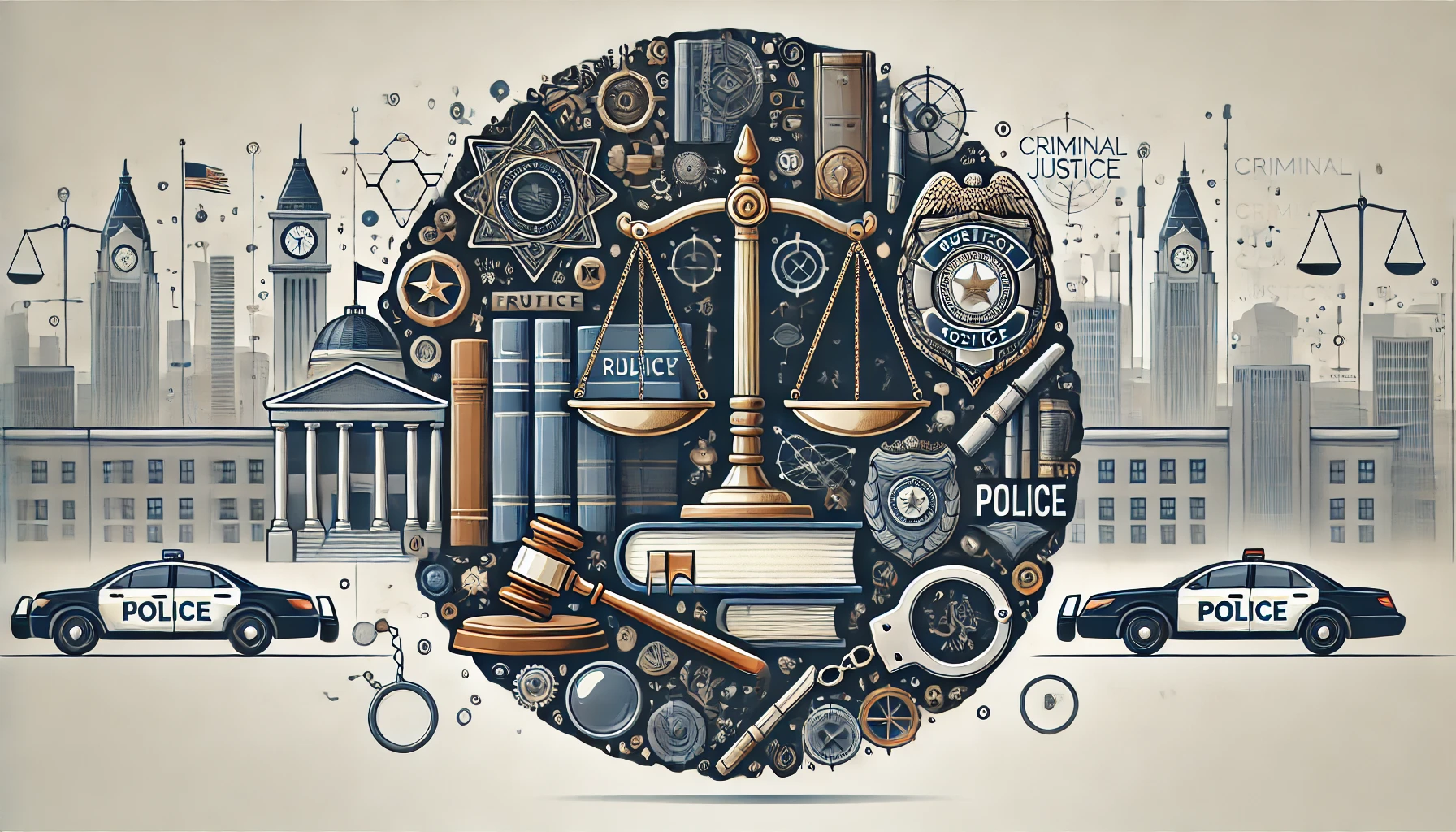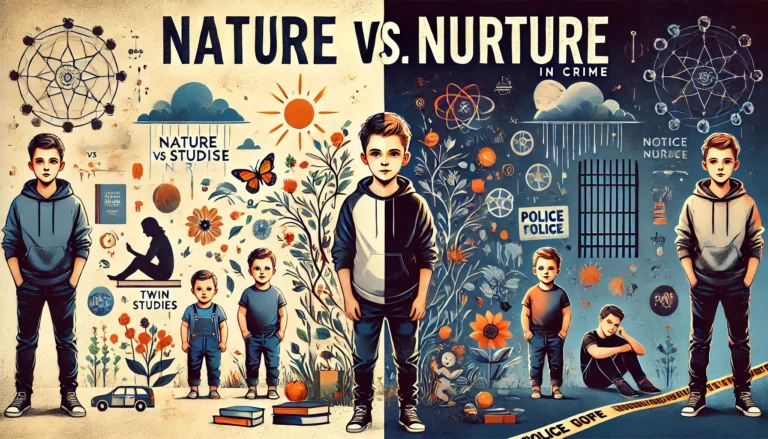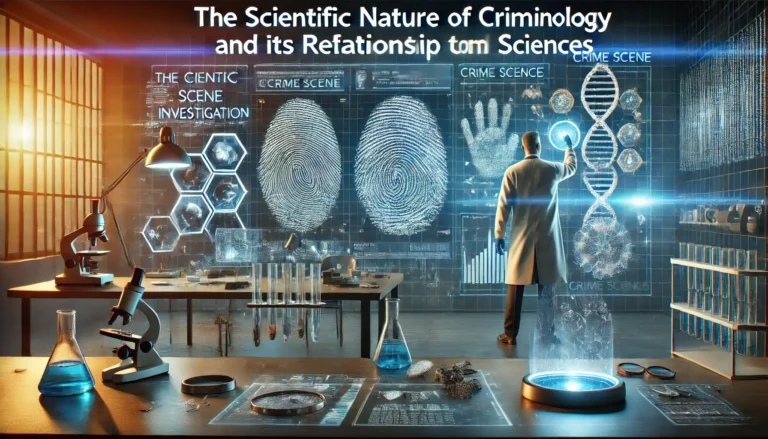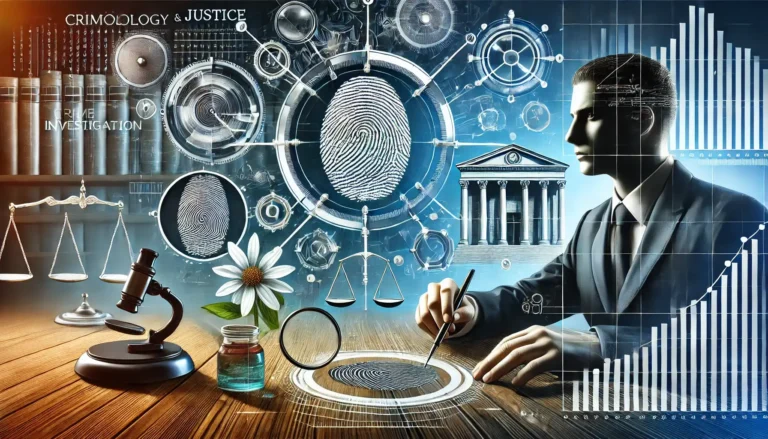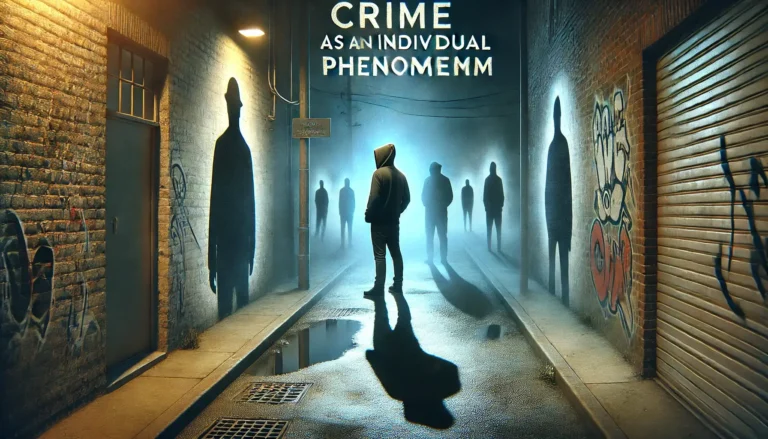Criminology and Criminal Policy
Criminology is the scientific study of crime, criminal behavior, and the societal responses to crime. It explores the causes of criminal activity, the effects of crime on society, and the systems in place to prevent or punish crime. On the other hand, criminal policy refers to the strategies and laws developed by governments to address crime through law enforcement, punishment, and rehabilitation.
Understanding the relationship between criminology and criminal policy is essential for developing effective measures to control crime and promote justice. This article explores how criminology informs criminal policy, shaping the ways societies prevent and respond to crime.
Section 1: The Concept of Criminology and Its Goals
Criminology is not a static field; it evolves continuously in response to societal changes, new theories, and empirical research. At its core, criminology seeks to understand criminal behavior and its causes.
- Definition of Criminology: Criminology is the scientific discipline that studies crime, its causes, effects, and social responses. It seeks to understand why individuals engage in criminal behavior and the societal factors that contribute to criminal activities.
- Goals of Criminology: The primary objectives of criminology are to prevent crime, reduce recidivism, understand the impact of crime on communities, and develop strategies for crime prevention and justice system reform. It aims to analyze criminal patterns, improve policies, and suggest reforms to law enforcement and judicial systems.
- Schools of Thought in Criminology:
- Biological School: This theory posits that genetics and biology influence criminal behavior. It suggests that some individuals may be predisposed to commit crimes based on their genetic makeup or physical characteristics.
- Psychological School: Psychological theories of criminology focus on mental health, personality disorders, and early childhood experiences as potential causes of criminal behavior.
- Social School: Social criminology emphasizes the role of environmental and social factors, such as poverty, education, and family dynamics, in influencing criminal behavior. It focuses on how societal conditions contribute to crime.
Section 2: Criminal Policy: Concept and Application
Criminal policy refers to the framework that governments use to tackle crime. It includes laws, regulations, and strategies that aim to prevent criminal activities and manage the criminal justice system effectively. Criminal policy is shaped by the government’s goals in terms of crime control, social justice, and maintaining public safety.
- Definition of Criminal Policy: Criminal policy encompasses the laws and principles developed by a government to prevent and respond to crime. It reflects a nation’s approach to crime prevention, law enforcement, sentencing, and rehabilitation.
- Criminal Strategies and Policies: Various criminal strategies can be adopted by governments, including deterrence, rehabilitation, and incapacitation. For example, some countries emphasize a punitive approach that focuses on harsh penalties and incarceration, while others promote rehabilitation through educational programs and reintegration efforts.
- Goals of Criminal Policy: The key objectives of criminal policy include:
- Deterrence: Preventing crime by making the consequences of criminal behavior more severe or likely to happen.
- Punishment: Holding individuals accountable for their crimes and ensuring justice for victims.
- Rehabilitation: Reforming offenders through counseling, education, and training to reintegrate them into society.
- Prevention: Minimizing crime by addressing its root causes, such as poverty, social inequality, and mental health issues.
Section 3: The Relationship Between Criminology and Criminal Policy
The relationship between criminology and criminal policy is deeply intertwined. Criminological theories and research inform the development of criminal policies by providing insights into the causes of crime and effective ways to address it.
- How Criminology Informs Criminal Policy: Criminologists conduct research and build theories that help governments create effective criminal policies. For example, the identification of social factors that contribute to criminal behavior can lead to the development of crime prevention programs that target at-risk communities. Similarly, psychological research may inform policies aimed at providing mental health services for offenders.
- Criminology’s Role in Crime Prevention and Crime Control: Criminologists contribute to the development of crime prevention strategies by understanding criminal behavior patterns and advising policymakers on the most effective interventions. For instance, criminological research has led to the creation of diversion programs, restorative justice practices, and community policing initiatives.
- Collaboration Between Criminologists and Policymakers: Governments increasingly rely on criminological research to shape criminal policies. Collaboration between criminologists and policymakers ensures that the development of crime control strategies is grounded in scientific evidence and research. Criminologists can provide recommendations based on empirical findings, which can result in more effective and just criminal policies.
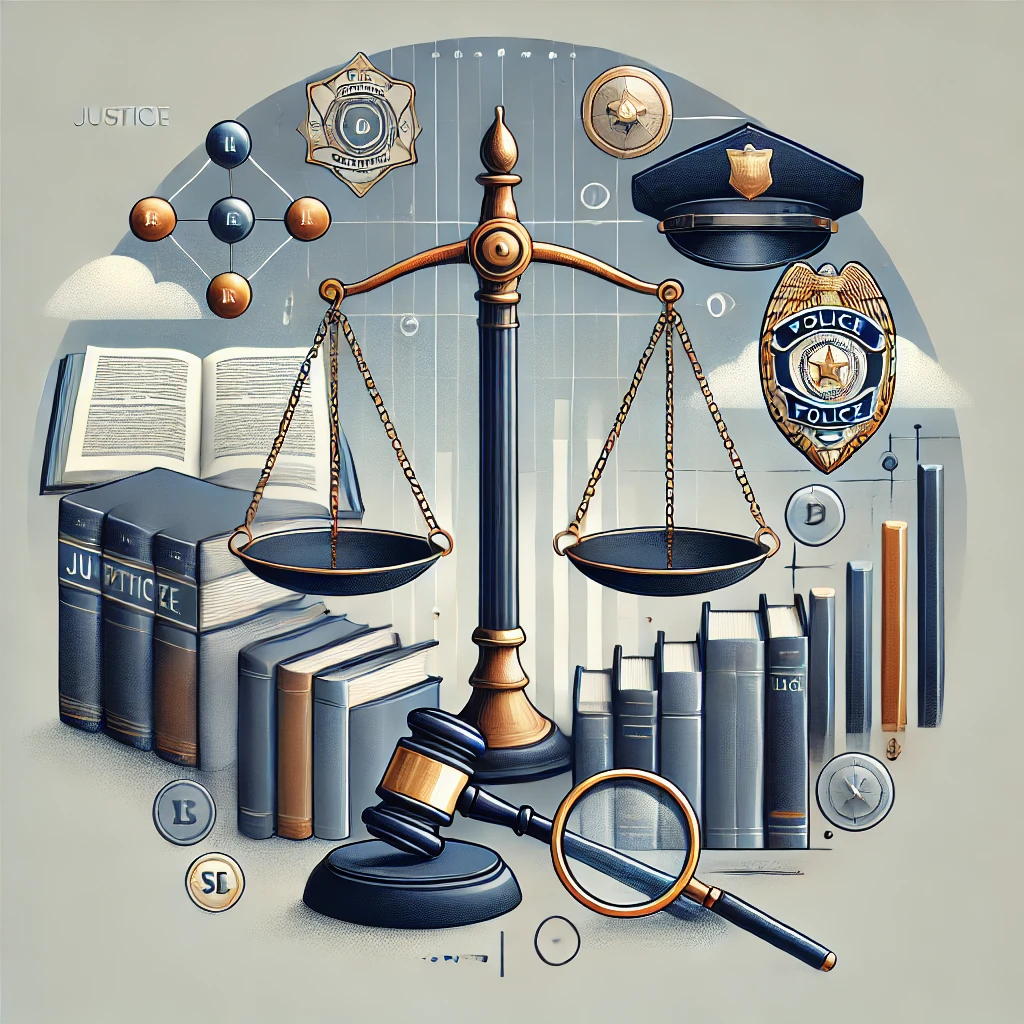
Section 4: Challenges in the Relationship Between Criminology and Criminal Policy
Despite the potential benefits of combining criminology with criminal policy, challenges remain in ensuring that criminological research is effectively translated into practical policy.
- Social and Cultural Challenges: Societal norms, values, and political ideologies often influence how criminal policies are shaped. In some cases, cultural attitudes towards crime may hinder the implementation of evidence-based policies. For example, public support for punitive measures may make it difficult to implement rehabilitation-focused strategies.
- Legal Challenges: The implementation of policies based on criminological research may encounter legal obstacles. Some policies may face challenges in terms of constitutional rights or human rights protections, especially when it comes to issues such as surveillance, privacy, and incarceration.
- Practical Challenges: Criminological theories may not always align with the realities of criminal justice systems. Law enforcement and the judicial system often face constraints related to resources, funding, and political pressures that can limit their ability to implement criminologically-informed policies effectively.
Section 5: Future Directions in Criminology and Criminal Policy
The future of criminology and criminal policy holds exciting potential for innovation, especially with the increasing role of technology and new criminological research.
- Technology and Its Impact on Criminal Policy: Emerging technologies such as artificial intelligence (AI), data analysis, and predictive policing offer new ways to prevent and control crime. For instance, AI-driven predictive tools can help law enforcement agencies allocate resources more effectively, while data analysis can identify crime hotspots and trends.
- Academic and Legislative Developments: As criminology continues to evolve, new theories and findings will play an important role in shaping criminal policy. Continued collaboration between criminologists and policymakers will be essential to ensure that criminal justice systems evolve to meet the challenges of modern societies.
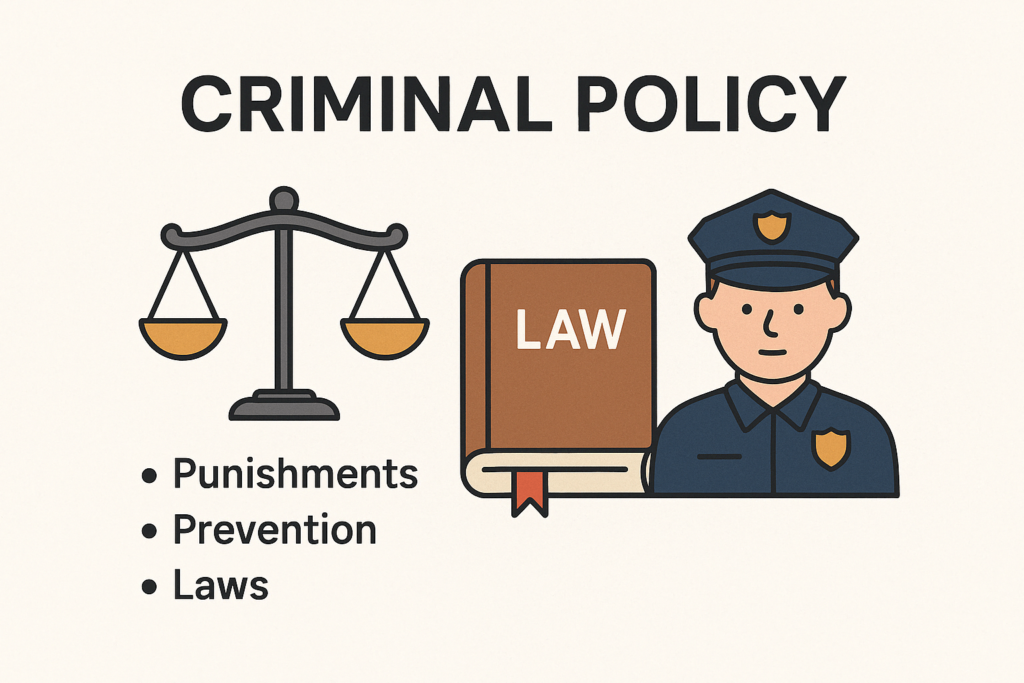
Conclusion
The relationship between criminology and criminal policy is crucial for the development of effective crime prevention strategies and the promotion of justice. Criminological research provides valuable insights that help shape criminal policies, while criminal policies offer the necessary framework to address and reduce crime. As both fields continue to evolve, their collaboration will be essential in creating just and effective systems that safeguard society against crime.

